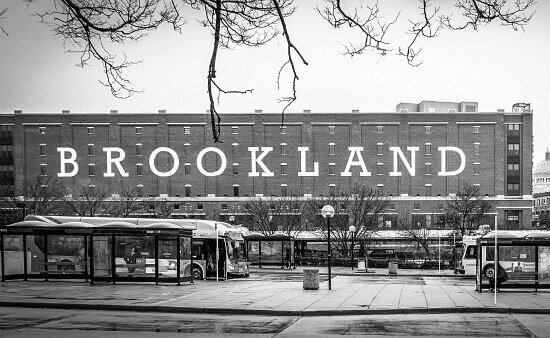Mission in the Space Between
by Dr. Gregory Thompson
Since the earliest days of my life as a Christian, the idea of having a “mission,” the conviction that my faith leads me not out of but deliberately into this world, has been fundamental to my understanding of both the meaning and purpose of life with God through Christ. Over the past thirty years, the ways that I have understood and expressed this mission have changed, of course; chastened and matured through deeper knowledge of God, church, and world. But what has not changed, and I hope will not change, is the sense meaning, the grace of community, and the experience of joy that Christian mission entails. It is a beautiful life.
Even so, this life of mission—a life that we all share—is not without its travails. And given that we are a congregation whose very identity is shaped by a shared mission, it is important that we understand these travails and support one another in the work of journeying through them as they come. For they will come.
Of these travails, one of the most feared is the experience of rejection; of being told that who we are and what we offer is unwelcome, of being exiled from the very communities we seek to love. And yet even as this experience is one of the most feared, it is also one of the least avoidable. Our Lord, the man of exile, testifies to this reality in both his life and his death. And so do the millions who have followed him throughout history and across the earth. And so will we.
In our own time, this experience of rejection is not only elevated but ensured by the strange space that Christian mission in American culture requires us to inhabit. And what is this space? It is a space that lies neither fully in the world nor fully in the church, but in a space between the two, a space oriented toward both but fully at home in neither. And this space, our space, is a space bound to the experience of rejection.
Here’s what I mean.
On one hand, we live in a culture that is, in many ways, suspicious of any claims that might be called normative, claims that presume to tell a comprehensive story about the world. Such claims, such stories, are seen merely to be expressions of a will to power, a will to distort reality in our own interest. There are good reasons for this view, of course. Indeed, one of the sad realities of both our cultural history and our current moment is the manifest ways in which cultural leaders—political, intellectual, economic, and religious—are transparently willing to do just this. Because of this, any community that seeks either to express or to embody normative convictions about the world is seen as a threat, as a community to be held in suspicion.
And this will be so for us. Why? Because we believe in God, the Father Almighty, Maker of Heaven and earth. We believe in Jesus Christ, His only Son, our Lord: incarnate, crucified, resurrected, ascended, and expected. We believe in the Holy Spirit, the holy catholic Church, the communion of saints, the forgiveness of sins, the resurrection of the dead, and the life everlasting. And we believe that each of these is true both for ourselves and for our neighbors—human beings loved by the living God. Yes, we hold these convictions with doubts and tears, with dim knowledge and broken wisdom, but we do hold them. Indeed, we are held by them.
That this is so invites the concern that we are dangerous, oppressive, and fundamentally self-interested. In invites, in other words, rejection. And more than this, under the logic of contemporary discourse, any attempt to defend ourselves against these claims is taken only as evidence of their truthfulness. In such a world, it is only by bearing this rejection and yet continuing to love that we can bear witness to a different world, a world that is surely to come.
On the other hand, we are a part of a larger church culture—namely the evangelical church in America—that is, in many ways, just as obstructive to faithful Christian mission. Fueled by centuries of mythology about American exceptionalism, the rightness of our empowerment, and the danger of our neighbors, many in the evangelical church are terrified of the dramatically different culture in which they find themselves. In response, many in this community are increasingly characterized by narratives of victimization, by deep suspicion of our neighbors and all who associate with them, and with an almost pathological impulse toward self-protection. Because of this, any community that seeks to honestly understand our neighbors, to learn from them, to dwell with them, and, when necessary, to defend them, is a community to be held in suspicion.
And this will be true of us too. Why? Because we believe that God loves the world. We believe that the nation we share is not theologically exceptional but is, like all nations, a mixture of beauty and shadow. We believe that control is an illusion that makes fools and villains of those who seek it. We believe that our neighbors, made in his image, are beings of glory, wisdom, and goodness with whom it is a blessing to live and from whom it is a gift to learn. We believe that narratives of victimization and grasps for power are a disgrace for those who follow the risen and ascended Christ. And, perhaps above all, we believe that we are not called to win, but to love.
That this is so again invites the concern—this time from the church—that we are dangerous, without conviction, and fundamentally obstructive to the coming of the kingdom of God. In invites, in other words, rejection. And because this rejection is so imbued with the blinding glow of self-righteousness and embedded in a community of relative isolation, it is largely impervious to correction. Again, it must simply be born in faith, hope, and love.
Because of the pain of rejection, the temptation to escape such a situation is ever before us. At times, we may wish to take refuge into hardened identities of victimization, to wear our rejection as a martyr’s badge. At other times, we may wish to avoid it by simply conceding to the terms forced upon us by either the scorn of the culture or the rage of the church. But each of these, consoling as they may appear, are actually enemies to Christian mission. Why? Because they tempt us to imagine that our lives are about ourselves. But our lives are not about ourselves. Our lives are about the living God and the living neighbor; about loving each with all that we are and all that we have.
Our work together at Mosaic is to strengthen one another to remain in the space between. To help one another bear the rejection that this entails. Yet to do so, not in the defeated spirit of victimized resignation, but in the joyful spirit of missional hope. A spirit that, even as it suffers, looks for the day when love, as it surely will, dissolves the boundaries between these spaces and reconciles all things in the light of the glory of God.

